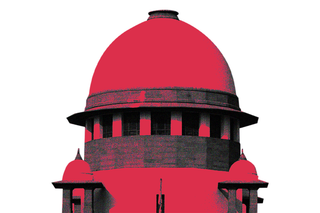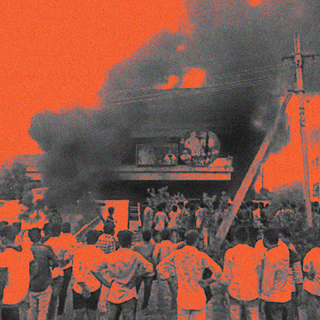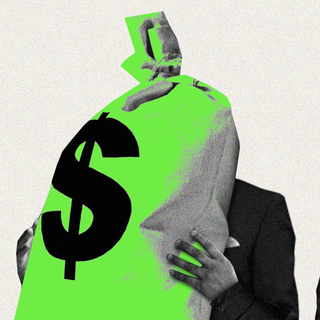
Sex Work is a Legal Profession, Says Supreme Court in Historic Order
Based on a panel’s recommendations, the court issued guidelines for the police and media to treat sex workers with dignity.

“It is as if they are a class whose rights are not recognized.” India’s Supreme Court, in its powerful and poignant judgment on Wednesday, recognized sex work as a “legal profession,” asserting that the basic dignity that comes with any profession should extend to sex workers as well.
“Notwithstanding the profession, every individual in this country has a right to a dignified life under Article 21 of the Constitution,” the apex court ruled. It issued a roster of guidelines for state governments, media, and police officials to follow while adopting the lens of a legal profession vis a vis sex work.
“We look forward to the positive changes this ruling will bring in the movement towards the rights of sex workers in India, and our neighboring nations. This is a step towards decriminalizing sex work and workers and in adequately recognizing their labor as informal workers in the country,” the National Network of Sex Workers (NNSW) said in a statement, referencing the judgment.
The Indian state’s treatment of sex workers has for decades been couched in fear and dehumanization, echoing a reluctance to treat them as citizens or people. Much of it stems from the anxiety around sex work — it remains legal in India but with certain limitations. This is where things get tricky; these limitationsare designed to constrain a major part of how sex work is carried out. For instance, soliciting sex work in public spaces or carrying out activities in hotels is illegal.
Sex work has traditionally been seen as a form of violence and exploitation, but the sex workers’ rights movement “has consistently argued that while there is violence within the sex industry, the exchange of sexual services for money does not in and of itself constitute violence,” a report noted. In other words, the violence — physical, emotional, and ideological — inflicted on sex workers and the nature of their work, in general, relies on an erroneous notion: that sex workers are criminals, and not citizens.
Despite the curtailed legality, the institutional violence faced by sex workers in addition to the societal stigma is staggering. The judgment spotlighted police abuse and media voyeurism in the way sex work is treated. “It has been noticed that the attitude of the police to sex workers is often brutal and violent,” the bench noted. The degree of violence is both brutal and frequent; reports and anecdotes show rampant police abuse, detentions, and even torture of sex workers — all under the guise of law and order. According to a survey by Pan India, 37% of women had been physically abused by the police. 51% of women surveyed stated that they had faced verbal abuse from law enforcement officers.
Thismakes the apex court’s guidelines imperative. These directions drew from the recommendations of a panel formed for the rehabilitation of sex workers. The Supreme Court noted the police should neither interfere nor take criminal action against adult and consenting sex workers. “The police and other law enforcement agencies should be sensitized to the rights of sex workers who also enjoy all basic human rights and other rights guaranteed in the Constitution to all citizens,” they said. “Police should treat all sex workers with dignity and should not abuse them, both verbally and physically, subject them to violence or coerce them into any sexual activity.”
Related on The Swaddle:
The Indian Govt Conflates Sex Workers With AIDS Control, Further Marginalizing Them
Even the media is complicit in the way it frames stories around the profession and the people. Their names and photographs are used brashly, risking their identities.
“Besides, the newly introduced Section 354C, IPC which makes voyeurism a criminal offense, should be strictly enforced against electronic media, in order to prohibit telecasting photos of sex workers with their clients in the garb of capturing the rescue operation,” the court noted. It urged the Press Council of India to collate guidelines with respect to reporting in cases of raids and rescue operations — a framework that is focused on protecting the identities of sex workers and not publishing/telecasting their photos.
For state governments, the directive was to set up more shelter homes and offer awareness campaigns to sex workers. Arguably, the lack of information reflects ideological confusion and unwillingness at an institutional level. Sex workers must then be equipped with knowledge about the rights they have in place, what is prohibited/permitted under law, and how they can access the judicial system in cases of harassment by police or traffickers. These are fundamental measures of the personhood of the workers at the locus.
In theory, recognizing sex work as a legal profession means they are afforded equal legal protection. This is a promising prospect; if a sex worker reports a criminal or sexual offense, the police are obliged to take it seriously as they would with other people. Or if a brothel is raided, sex workers will not be arrested, harassed, or penalized.
Moreover, the lens of personhood and legality can significantly impact the access to resources sex workers have in the aftermath of a sexual assault. The Supreme Court noted any sex worker, who is a victim of sexual assault, will be given all of the same services as a survivor of sexual assault, including immediate medical attention. This direction falls under Section 357C of the Code of Criminal Procedure, 1973.
Recognizing sex work as a profession, however, is only half the battle won — actual access to rights, entitlements, and resources constitute the other half. “As citizens or human beings with fundamental rights, sex workers have and continue to be invisibilized in the eyes of the state,” Rohitha Naraharisetty wrote in The Swaddle. “This is despite the fact that sex work itself is not illegal in India; it is, however, criminalized on an ideological level.”
This sentiment echoes in artist Stromae’s song, which lyrically and heartbreakingly notes: “Forgive their foolishness, oh dear mother/They dehumanize you, it’s easier The same are courting you/And everyone closes their eyes.”
It is important to keep in mind that as buoyant these directions are in their outlook, these are not yet enforceable without an executive order. The central government has six weeks to respond to them.
For now, the judgment is a step forward in offering a much-needed plea for respecting the fundamental rights of sex workers. The risk for violence increases for sex workers because of the erroneous notion that sex work is illegal, which often forces people to operate furtively and risk violence and safety. As Sudhir, treasurer at the NNSW, told The Swaddle: “First I am an Indian citizen; I am a sex worker only after that.”
Saumya Kalia is an Associate Editor at The Swaddle. Her journalism and writing explore issues of social justice, digital sub-cultures, media ecosystem, literature, and memory as they cut across socio-cultural periods. You can reach her at @Saumya_Kalia.
Related


Casteist Violence Over Renaming an Andhra District After Ambedkar Shows How Naming Is Political
